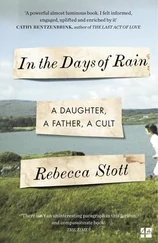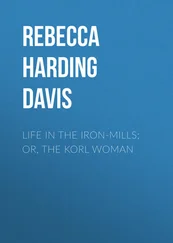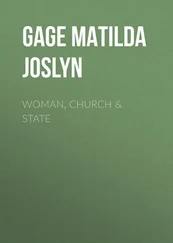When (v5) - Rebecca Stead
Здесь есть возможность читать онлайн «When (v5) - Rebecca Stead» весь текст электронной книги совершенно бесплатно (целиком полную версию без сокращений). В некоторых случаях можно слушать аудио, скачать через торрент в формате fb2 и присутствует краткое содержание. Год выпуска: 2009, ISBN: 2009, Издательство: a cognizant original v5 release october 23 2010, Жанр: Старинная литература, на английском языке. Описание произведения, (предисловие) а так же отзывы посетителей доступны на портале библиотеки ЛибКат.
- Название:Rebecca Stead
- Автор:
- Издательство:a cognizant original v5 release october 23 2010
- Жанр:
- Год:2009
- ISBN:9780375892691
- Рейтинг книги:4 / 5. Голосов: 1
-
Избранное:Добавить в избранное
- Отзывы:
-
Ваша оценка:
- 80
- 1
- 2
- 3
- 4
- 5
Rebecca Stead: краткое содержание, описание и аннотация
Предлагаем к чтению аннотацию, описание, краткое содержание или предисловие (зависит от того, что написал сам автор книги «Rebecca Stead»). Если вы не нашли необходимую информацию о книге — напишите в комментариях, мы постараемся отыскать её.
Rebecca Stead — читать онлайн бесплатно полную книгу (весь текст) целиком
Ниже представлен текст книги, разбитый по страницам. Система сохранения места последней прочитанной страницы, позволяет с удобством читать онлайн бесплатно книгу «Rebecca Stead», без необходимости каждый раз заново искать на чём Вы остановились. Поставьте закладку, и сможете в любой момент перейти на страницу, на которой закончили чтение.
Интервал:
Закладка:
“Don’t you remember?” He leaned forward in his chair. “They’re traveling through time, right? All over the universe, right? And they promise that girl that they’ll have her back home five minutes before she left. But they don’t.”
“How do you know they don’t get her home five minutes before she left? I mean, there’s no clock or anything. They leave at night and they get back the same night. Maybe they left at eight-thirty and got home at eight-twenty-five.”
He laughed. “You don’t need a clock . Think. At the beginning of the book, that girl walks through the vegetable garden—”
“Meg.”
“Huh?”
“You keep saying ‘that girl.’ Her name is Meg.”
“—so she walks to the far side of the vegetable garden and sits on this stone wall, right? So, she can see the garden from where she’s sitting and talking with that boy right? And then those ladies show up and take them away.”
“His name is Calvin. And so what if they can see the garden?”
“So the garden is where they appear when they get back home at the end of the book. Remember? They land in the broccoli. So if they had gotten home five minutes before they left, like those ladies promised they would, then they would have seen themselves get back. Before they left.”
I put my book down and shook my head. “Think about it. They hadn’t even left yet. How could they have gotten back already? They didn’t even know for sure whether they would get back.”
“It doesn’t matter whether they knew it. That’s got nothing to do with it.” He leaned back and shoved his hands in his pockets. “If they land in the broccoli at eight-twenty-five, they should be in the broccoli at eight-twenty-five. Period.”
“That makes no sense,” I said. “What if they couldn’t do it—save Meg’s father and get back in one piece?”
“Then they wouldn’t have landed in the broccoli at all. But they did do it, right?”
“Yes, but—the end can’t happen before the middle!”
He smiled. “Why can’t it?”
“I don’t know—it’s common sense!”
“Common sense! Have you read Relativity? You know—by Einstein?”
I glared at him.
“Einstein says common sense is just habit of thought. It’s how we’re used to thinking about things, but a lot of the time it just gets in the way.”
“In the way of what?”
“In the way of what’s true. I mean, it used to be common sense that the world was flat and the sun revolved around it. But at some point, someone had to reject that assumption, or at least question it.”
“Well, obviously somebody did.”
“Well, duh . Copernicus did! Look, all I’m saying is that at the end of the book, they don’t get back five minutes before they left. Or they would have seen themselves get back—before they left.”
I gave up. “It was dark in the garden,” I said. “Maybe they just couldn’t see themselves from where they were sitting.”
“I thought of that,” he said. “But they would have heard all the yelling, and the dog—”
“My God, what does it matter? It’s a story —someone made it up! You do realize that, don’t you?”
He shrugged. “The story is made up. But time travel is possible. In theory. I’ve read some articles about it.”
“Wow. You really do like math, don’t you?”
He smiled again. With his supershort hair, his head looked like a perfectly round ball when he smiled. “This is more like physics.”
“Fine. You really like physics , don’t you?”
“Yeah.” He picked up my book from the table and flipped through it. “Actually, I had almost this same conversation with my teacher right after I read this. She didn’t understand me at first either.”
“She? Mr. Anderson is a he . You really don’t notice much about people, do you?”
“Not Mr. Anderson. This was in second grade. I wrote a book report about it.”
“In second grade?”
He put the book down. “Yeah. Back in Detroit, where we used to live, till last year. But I don’t talk about this kind of stuff anymore. Usually.”
“Why not?”
He shot me a look. “People don’t want to think about it.”
“I can see why,” I said. “It makes my head hurt.”
“Still, you did better than most people. You’re a pretty smart kid.”
I rolled my eyes. “Gee, thanks.”
* * *
“Okay, Marcus,” the dentist chirped from the other room. “You’re up!”
I watched Marcus slip into the big chair and begin to read his math book again, holding it up with one hand while the dentist worked from the other side. The fourth grader waited for me by the door with his sticker on.
“Miranda, you can go on back to your class,” the dentist called. “Marcus is going to be here awhile. He can walk himself upstairs when we’re through.”
So I picked up my book and hiked back up the stairs with the fourth grader. As we started down the hallway to his classroom, he stopped, and I waited while he peeled the sticker off his shirt, folded it, and stuck it in his pocket.
Things That Smell
For a long time, Colin was just this short kid who seemed to end up in my class every year. In third grade, he and I spent about a week convincing Alice Evans that velour was a kind of animal fur, and she refused to wear it for the rest of the year. But aside from that, we had never hung out together. I’d seen him with his skateboard in the park a few times, and he always let me have a turn on it, but that was all.
And then suddenly he was everywhere. He came downstairs with me and Annemarie at lunch, or yelled “Hold up” and walked to Broadway with us after school to get drinks at Jimmy’s sandwich shop.
It was Colin who had the idea to ask Jimmy for a job. I’m pretty sure he was kidding. Colin was always saying weird stuff to people that made you partly proud to know him and partly wish you weren’t standing next to him. Attention-seeking, is what Mom would call him.
“Hey,” Colin said to Jimmy after school one day in the beginning of November, when we were paying for our Cokes. “You’re always alone in here. How about talking to the owner about giving us jobs?”
“I’m the owner,” Jimmy said. “And who’s ‘us’?”
It was me, Annemarie, and Colin standing there. “Us,” Colin said. “We could work after school.”
Jimmy grabbed a pickle chunk out of the setup tray, which I didn’t know the name of yet, and tossed it into his mouth. “I don’t need help that late. What about when I open up?”
“We have lunch at ten-forty-five,” Colin said. A stupidly early lunch. At our school, the older you get, the stupider your lunch period.
Jimmy nodded. “That works.”
I didn’t think Jimmy was serious, but Colin said we should show up at lunchtime the next day, just in case.
And it turned out he was serious. The three of us worked during lunch for the rest of that week. We washed a lot of greasy plastic trays, weighed piles of sliced meat (which is as gross as it sounds), stacked up sodas in the refrigerated case, cut tomatoes, and did whatever else Jimmy said to do.
I guess it’s obvious that Jimmy was kind of weird, because no normal person would have given forty-minute-a-day jobs to three sixth graders. On our first day, Jimmy spent about five entire minutes pointing to a plastic bank shaped like Fred Flintstone that he had up on a shelf in the back room. “Never touch the bank,” he said. “Never.”
When I pointed Jimmy’s weirdness out to Annemarie, she said, “Yeah, but he’s nice-weird, not creepy-weird.”
Читать дальшеИнтервал:
Закладка:
Похожие книги на «Rebecca Stead»
Представляем Вашему вниманию похожие книги на «Rebecca Stead» списком для выбора. Мы отобрали схожую по названию и смыслу литературу в надежде предоставить читателям больше вариантов отыскать новые, интересные, ещё непрочитанные произведения.
Обсуждение, отзывы о книге «Rebecca Stead» и просто собственные мнения читателей. Оставьте ваши комментарии, напишите, что Вы думаете о произведении, его смысле или главных героях. Укажите что конкретно понравилось, а что нет, и почему Вы так считаете.












